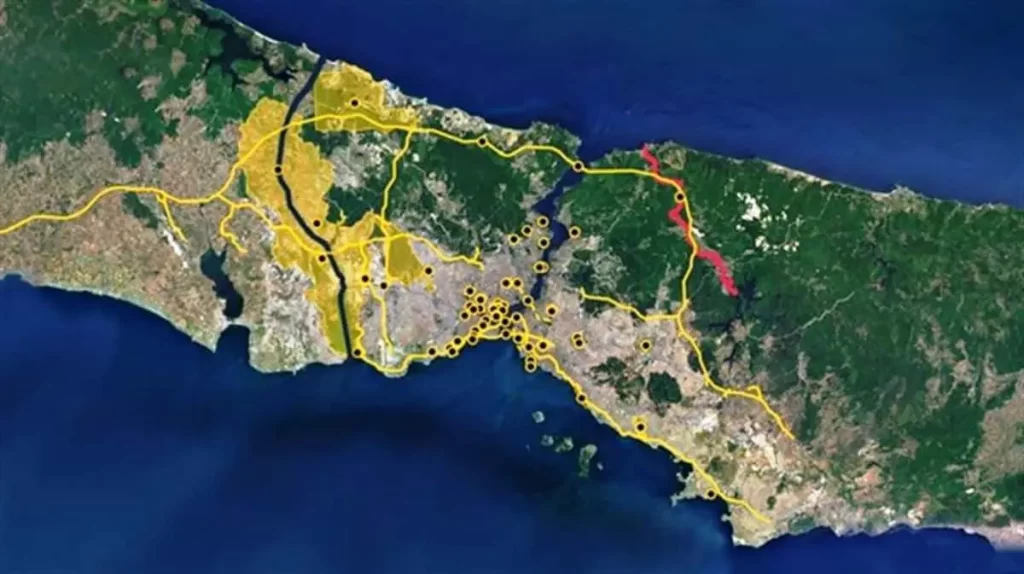The Istanbul Canal Project: Necessity or Vanity?
The Istanbul Canal, a monumental project proposed by Turkey’s leadership, has stirred significant debate both domestically and internationally. As a country strategically positioned between Europe and Asia, Turkey’s control over its waterways has historically played a critical role in its geopolitical leverage. However, the question remains: Is the Istanbul Canal a strategic necessity for Turkey, or merely a costly political ambition? This article explores both sides of this debate, considering the canal’s potential benefits and challenges.
What Is the Istanbul Canal Project?
The Istanbul Canal, often referred to as the “second Bosphorus,” is a proposed 45-kilometer artificial waterway connecting the Black Sea to the Sea of Marmara. Planned to the west of Istanbul, this canal would provide an alternative route to the Bosphorus Strait, which currently serves as one of the world’s most congested and geopolitically important maritime routes. The Turkish government has framed the project as a transformative infrastructure initiative, while critics have raised concerns about its environmental, economic, and geopolitical implications.
The Strategic Importance of Turkey’s Waterways
Turkey’s waterways, particularly the Bosphorus and Dardanelles Straits, hold immense significance for global maritime trade and military strategy. Under the 1936 Montreux Convention, Turkey maintains sovereignty over these straits but must allow free passage to civilian vessels during peacetime. However, military restrictions and the growing congestion in the Bosphorus have sparked debates on the need for an alternative route.
Proponents argue that the Istanbul Canal would alleviate this congestion, reduce environmental risks, and enhance Turkey’s control over maritime traffic. By providing an alternative to the Montreux-regulated Bosphorus, Turkey could assert greater sovereignty over its maritime routes, which could translate into stronger geopolitical leverage.
Istanbul Canal Project: A Strategic Necessity?
From a geopolitical standpoint, the Istanbul Canal Project could provide Turkey with a significant advantage. As global trade increases, the Bosphorus faces rising congestion, with thousands of vessels passing through each year. This congestion not only slows down shipping times but also heightens the risk of accidents, posing a threat to the densely populated city of Istanbul. Advocates of the canal claim that it would mitigate these risks while enhancing Turkey’s role as a central player in international maritime routes.
Furthermore, the canal could potentially allow Turkey to bypass certain provisions of the Montreux Convention. Since the new canal would not be subject to the same legal framework, Turkey could impose fees and regulate traffic in ways that are not possible under the current regime, possibly boosting the country’s economy.
Political Ambition or Vanity Project?
While the strategic arguments are compelling, critics question whether the Istanbul canal project is truly necessary or simply a political symbol of ambition. The canal’s projected cost is estimated at over $10 billion which has raised concerns about its economic feasibility. With Turkey already grappling with economic challenges, including high inflation and currency volatility, many question whether such a massive infrastructure project is wise.
Additionally, environmentalists argue that the canal could have devastating ecological consequences. The construction of the canal would likely disrupt ecosystems, threaten Istanbul’s water supply, and alter the balance of marine life in both the Black Sea and the Sea of Marmara. These environmental concerns, coupled with the significant financial burden, fuel the argument that the project may be more of a political vanity project than a strategic necessity.

Environmental and Economic Concerns
One of the key criticisms of the Istanbul Canal revolves around its potential environmental impact. The canal’s construction would likely displace local communities, disrupt the natural landscape, and threaten Istanbul’s already fragile water resources. Moreover, experts warn of the ecological imbalance that could result from mixing the waters of the Black Sea and the Sea of Marmara, possibly leading to significant changes in marine life and water quality.
Economically, the canal’s high cost comes at a time when Turkey’s economy is under pressure. Critics argue that the resources allocated to this project could be better spent addressing more immediate challenges such as unemployment, inflation, and infrastructure improvements across the country.
The Verdict: Strategic Necessity or Costly Ambition?
The Istanbul Canal is undoubtedly a bold and ambitious project, one that has the potential to reshape Turkey’s geopolitical landscape. However, whether it is a strategic necessity or a costly political ambition remains an open question. While the canal could alleviate congestion in the Bosphorus and strengthen Turkey’s control over maritime traffic, the significant financial, environmental, and political costs cannot be ignored.
Ultimately, the Istanbul Canal reflects a broader tension in Turkey’s development strategy—balancing ambitious infrastructure projects with the practical needs of its economy and environment. As the debate continues, it is clear that the future of the Istanbul Canal will be shaped by both strategic considerations and domestic politics.
The project’s implementation seems unlikely in the near future. Financial, environmental, and political challenges stand in the way. These issues must be resolves before making real progress.















